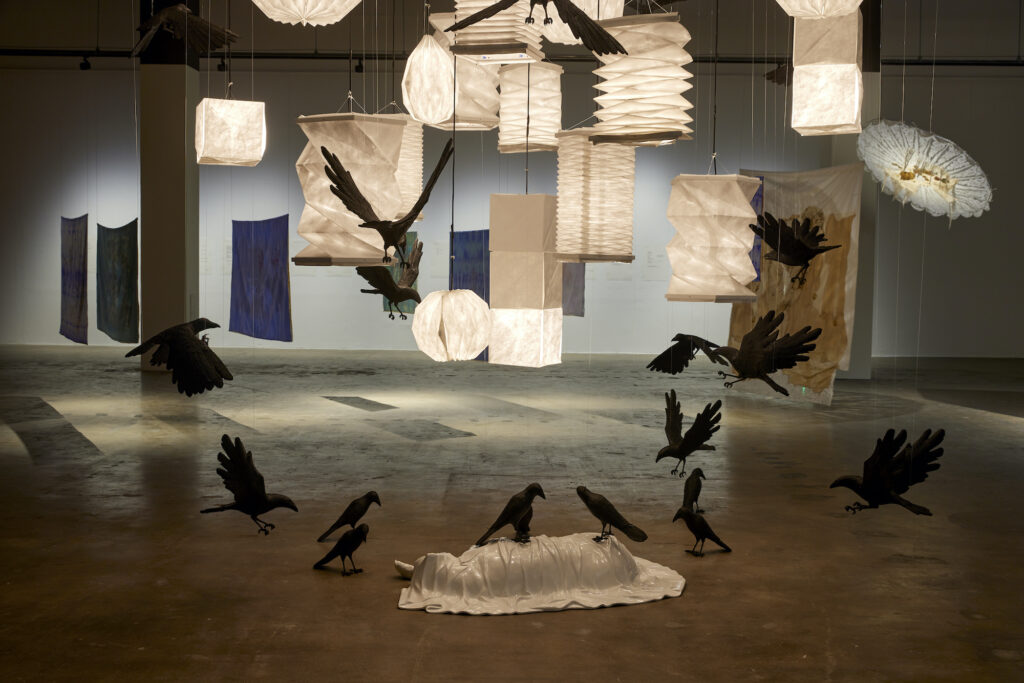
Timoteus Anggawan Kusno, Shades of the Unseen, 2021, mixed media installation, dimensions variable, courtesy the artist and TAK Studioworks. Commissioned by the 13th Gwangju Biennale
Timoteus Anggawan Kusno, Shades of the Unseen, 2021, mixed media installation, dimensions variable, courtesy the artist and TAK Studioworks. Commissioned by the 13th Gwangju Biennale

Timoteus Anggawan Kusno is based in Yogyakarta, Indonesia, and a former student of social and political sciences. His work is influenced by Javanese traditions and examines how texts exist with and challenge “official narratives” of history. Kusno questions the noises and silences of post-dictatorship experience and their subtle resonance with the bangs and whispers of colonial history through ethnographic methods and institutional approaches that incorporate techniques including drawing, graphic design, film, photography, writing and editing literature, performance, and installation.
In 2013, Kusno established The Centre for Tanah Runcuk Studies (CTRS) to produce knowledge of and research on Tanah Runcuk, an imaginary territory in the Dutch East Indies,with historians, anthropologists, fellow artists, and academics. This fictional institution is an alternative instrument to experience how a text is produced, read, and reproduced and to interpret the fiction of reality through invented histories and vice versa. Commissioned for the 13th Gwangju Biennale, Shades of the Unseen (2021) emerged from his research on how the supernatural world, or the world of the unseen, has become a space for abstraction, encounter, and documentation of things that are invalidated or made unrecordable by the ruling regime and “history”.
In this installation, the “Unseen” is a cosmic space in which the supernatural resides, a place to accommodate all that is invisible—an environment for buried things. The invisible world is an arbitrary one, a dark, forlorn space in which traumatic memories expelled by the authorities persist, coexist with ghosts, and haunt people. The memories, every so often, are rendered covert beneath inherited sacred belief. To encounter the “Unseen,” people chant mantras and prayers and illuminate lanterns—rituals of exorcism made metaphorical in the work.
Timoteus Anggawan Kusno, Shades of the Unseen, 2021, mixed media installation, dimensions variable, courtesy the artist and TAK Studioworks. Commissioned by the 13th Gwangju Biennale